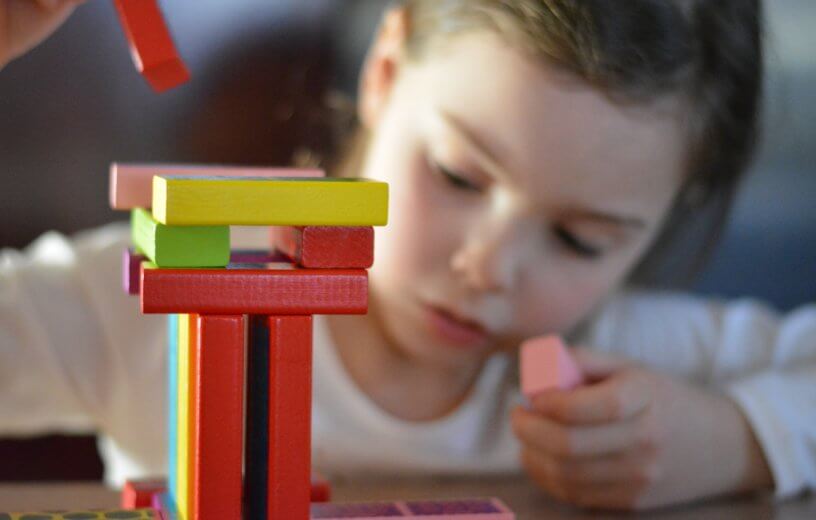WEST LAFAYETTE, Ind. — Preparing preschoolers for kindergarten can be a source of fear and excitement among young parents. Many find themselves wondering: “Is my child ready?” New research shows that one brain-boosting building block to school readiness is semi-structured block play.
Researchers at Purdue University say that preschool children who spend time in semi-structured block play experience improvement in two important skills for their jump to kindergarten: mathematics and executive functioning.
“As an early childhood expert, I feel like I’m constantly being asked by parents and teachers, ‘What can I do with my child to support their school readiness skills?’” says Sara Schmitt, an assistant professor in the university’s Department of Human Development and Family Studies, in a media release. “What I find myself saying a lot, among other things, is block play. But there’s actually not a lot of empirical evidence to support this statement, particularly with regard to mathematics and executive functioning development. That’s why I wanted to do this study: I wanted to understand if these suggestions I was making to parents and teachers were actually valid.”
So Schmitt recruited 59 participants ranging in age from about 3 to 5 years old and placed them in 14 small-group play sessions that lasted 15 to 20 minutes. The children were given wooden blocks of varying shapes and sizes, but this was not simple free play with blocks. Just before each session, the preschoolers were given short prompts that became increasingly difficult.
“We started very simple and then, by the end, we were asking them to do very complex things,” Schmitt explains. “For example, in the first session, we asked the children to build a tower. By the end of the intervention we asked them to replicate pictures of complex structures we had built previously. We think these prompts helped children to engage with mathematical concepts and also practice their executive function skills more so than they would have without the prompts. ”
To test the impact of the intervention, two to three assessments were taken before and after the block play sessions. These 20- to 30-minute evaluations revealed a pattern of increased skill development in the preschoolers involved in semi-structured block play. Schmitt concluded that children who participated in the block play intervention had higher gains in three mathematics skills (numeracy, shape recognition and mathematical language) and two markers of executive functioning (flexibility in thinking and ability to utilize all areas of the brain).
“It’s not just block play, it is intentionally using block play to facilitate the development of these skills,” Schmitt says. “The takeaway is not just putting the child in front of a set of blocks and walking away, or having blocks be available during free play. It’s giving a little bit of structure and a goal for the child, which I think really elicits these skills.”
Interestingly, the researchers noted that children whose parents had attained a lower educational level benefited the most in the areas of numeracy, cognitive flexibility and global executive functioning. The findings are preliminary, but point to the benefits of semi-structured block play and indicate that it might be a beneficial instructional tool in all preschool classrooms.
“Blocks are ubiquitous in early childhood classrooms and at home, and generally, adults feel comfortable with them. Our study suggests that playing with blocks in a semi-structured format may improve these important skills,” Schmitt says. “We could be onto something that could have a lot of impact, especially for children in families with a lower socioeconomic status, at little cost and with little training.”
The study was published online in the 2018 third quarterly edition of Early Childhood Research Quarterly.
